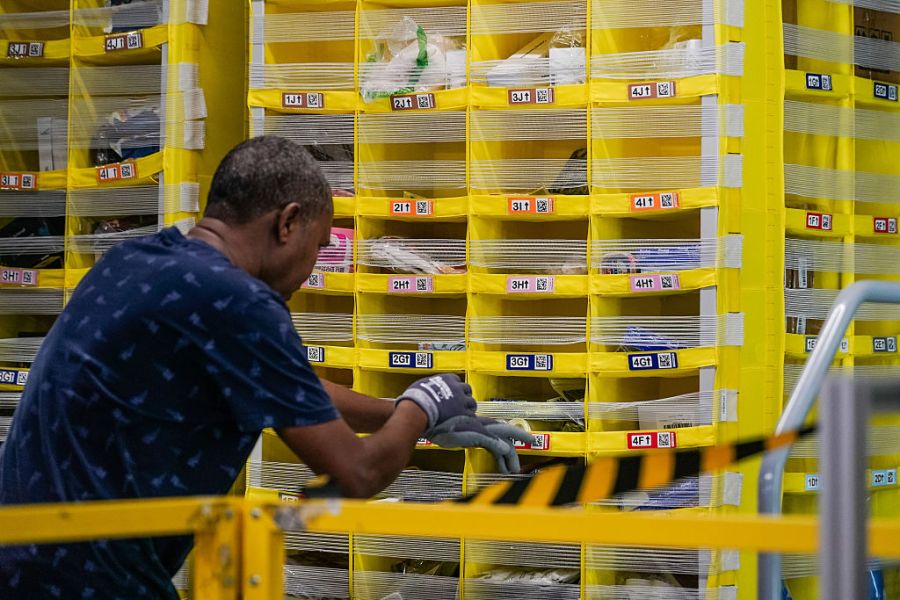URGENT UPDATE: Amazon is making a bold move to replace up to 600,000 U.S. jobs with robots, as revealed in an explosive report by The New York Times. The e-commerce titan’s automation strategy aims to significantly cut labor costs and improve efficiency, projecting a reduction of over 160,000 workers by 2027 alone. This shift highlights a dramatic transformation in the workforce landscape, as technology continues to reshape traditional employment roles.
According to leaked internal documents, Amazon’s robotics team plans to automate a staggering 75% of its operations. This automation initiative is expected to save the company approximately 30 cents on every item it processes. As Amazon anticipates doubling its sales by 2033, the reliance on robotics could lead to a workforce shift that sees machines outnumbering human employees in warehouses.
The implications of this strategy are profound, raising concerns about the future of work in America. Senator Bernie Sanders reacted sharply, stating, “Big Tech oligarchs are coming for your job,” referencing a broader trend where automation and AI threaten millions of jobs. Sanders previously warned that nearly 100 million jobs could be lost to AI and automation in the next decade.
Despite these alarming projections, Amazon insists that the leaked documents do not accurately represent its overall hiring strategy. Kelly Nantel, an Amazon spokesperson, stated, “The materials appear to reflect the perspective of just one team and don’t represent our overall hiring strategy across our various operations business lines — now or moving forward.” Nantel emphasized that Amazon has added more U.S. jobs over the past decade than any other company and has plans to fill 250,000 positions for the upcoming holiday season.
The automation push is not new for Amazon. In June, the company celebrated the deployment of its 1 millionth robot, a milestone achieved over 13 years. CEO Andy Jassy has acknowledged that AI advancements are expected to reduce the total corporate workforce, citing “efficiency gains” as a driving force behind this trend.
In response to potential public backlash, Amazon is reportedly refining its public relations strategies. Internal documents suggest the company may avoid terms like “automation” and “AI,” opting instead for more palatable phrases such as “advanced technology.” Additionally, the company is considering increasing its visibility in community events, aiming to bolster its image as a “good corporate citizen.”
While Amazon’s automation strategy is unfolding, experts remain divided on the immediate impact of AI on employment. A recent study by the Yale University Budget Lab and the Brookings Institution indicates that generative AI has not yet led to significant job losses since the launch of ChatGPT in November 2022.
As companies like Amazon continue to innovate and automate, the conversation surrounding the future of work intensifies. The urgency of adapting to these changes is paramount, as both employees and policymakers grapple with the implications of a rapidly evolving job market.
Stay tuned for more updates on this developing story as Amazon’s automation plans unfold and their impact on employment becomes clearer.







